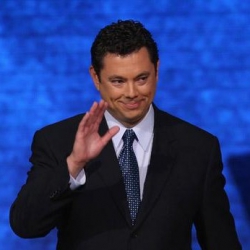Representative Jason Chaffetz addressed the Utah legislature on Friday, discussing hot-button topics like online gambling, federal taxes, and federal control over public lands. The new chairman of the U.S. House Oversight and Government Reform Committee spoke before a joint session of the Utah House and Senate, receiving several standing ovations for his comments.
Categorical Ban Online Gambling
Of particular interest to readers of online gambling websites were the US representative’s comments on the fight to ban online gambling in 50 U.S. states. He told Utah’s state lawmakers, “I need your help and participation in paying attention to this because online gaming is coming to your 8-year-old’s app sooner rather than later. It’s on its way.”
Chaffetz was speaking about the 2011 Justice Department memo which stated the UIGEA applied only to online sports gambling, but not online casinos or poker sites–at least according to the nation’s top law enforcement division.
That memo came in reply to a question by the states of New York and Illinois on the question. The UIGEA, which was passed in September 2006 and went into effect in January 2007, banned financial transactions which supported online gaming which was banned by the 1961 Wire Act.
How the 1961 Wire Act Reads
The 1961 Wire Act banned sports bets over electric wires, associated with phone lines in the day. From the beginning of the Internet, most Americans agreed the Wire Act applied to online sportsbooks operating in the United States, because the Wire Act specifically stated sports wagers were banned over the wires.
Since casino gambling and poker betting could not be performed over the phone lines, though, the Wire Act never discussed a ban on those forms of gambling. Many Republican lawmakers have argued that the Wire Act applied to all forms of gambling, which is why Jason Chaffetz and Lindsey Graham pushed the Restoration of the Wire Act in 2014. That push failed, but the two national lawmakers return in 2015 with renewed energy and more influence.
Their hope is to ban legalized online gambling, which currently takes place in Nevada, New Jersey, and Delaware. In the other 47 US states, state laws ban online casinos and poker rooms, despite no federal injunction.
Gambling Legal in Utah and Hawaii?
Chaffetz explained to the Utah legislators that the Justice Department opinion makes gambling legal in “Utah and Hawaii“, the only two states with no form of legal gambling. In truth, those states ban gambling, so online wagers of any kind are banned at the state level. Due to state’s rights, people cannot engage in legal betting in either Utah or Hawaii.
Despite that fact, Jason Chaffetz reiterated his point, stating that mobile gambling would be coming to Utah soon, and that 8-year olds would be able to gamble using smartphones. Once again, Chaffetz misstates the availability of online and mobile gambling to Americans living in Utah or Hawaii. Due to tested and proven geolocation technology, no one outside of New Jersey, Nevada, or Delaware can play for real money at the licensed online casinos and poker rooms. The crowd of state lawmakers seemed unaware of that fact, because they applauded Chaffetz’s comments on the subject.
Federal Gas Tax
One state lawmaker contradicted Rep. Chaffetz on his comments about the federal gas tax, though. Chaffetz called for politicians in his state to help him repeal the federal gas tax, as he said, “We’re no longer trying to build some transcontinental highway that goes from the Atlantic to the Pacific. Why should we go to the pump, pay a federal gas tax, and then beg, hope and plead that we’re going to get a portion of that back to the state of Utah?”
State Senator Scott Jenkins, a Republican from Plain City, Utah, said he understood that the federal gas tax would go away automatically this summer, if the U.S. Congress does nothing to stop it. Chaffetz said he would need to “check on that” to determine whether he or Sen. Jenkins were correct.
Economic Issues
When he spoke about President Obama’s stance on the inheritance tax, Chaffetz received a wave of applause. He called an inheritance tax immortal, because it was an attempt at social engineering and wealth redistribution by taking from grieving families.
Chaffetz said, “We should be encouraging people to create as much prosperity as they can for them and their families and for future generations. How dare they think they should come in and take any percentage of anything because somebody died.”
Chaffetz also spoke with passion about the growing gap in wages in the United States. The median income, which measures the number upon which wealth distribution is equal–that is, with half of the nation’s wealth above the line and half below it–is growing. The US representative from Utah believes that growth is due to Democratic policies, so he vowed to change the trends by opposing Obama’s economic policies.
On Public Lands
He also opposes federal policies on public lands. He said that Obama could create a national monument in Utah at any time and there would be nothing he, nor any one in Utah, could do.
Chaffetz added, “When and if the president designates a monument, you can’t call me. I’ll take your call, but there’s nothing I can do about it.“

